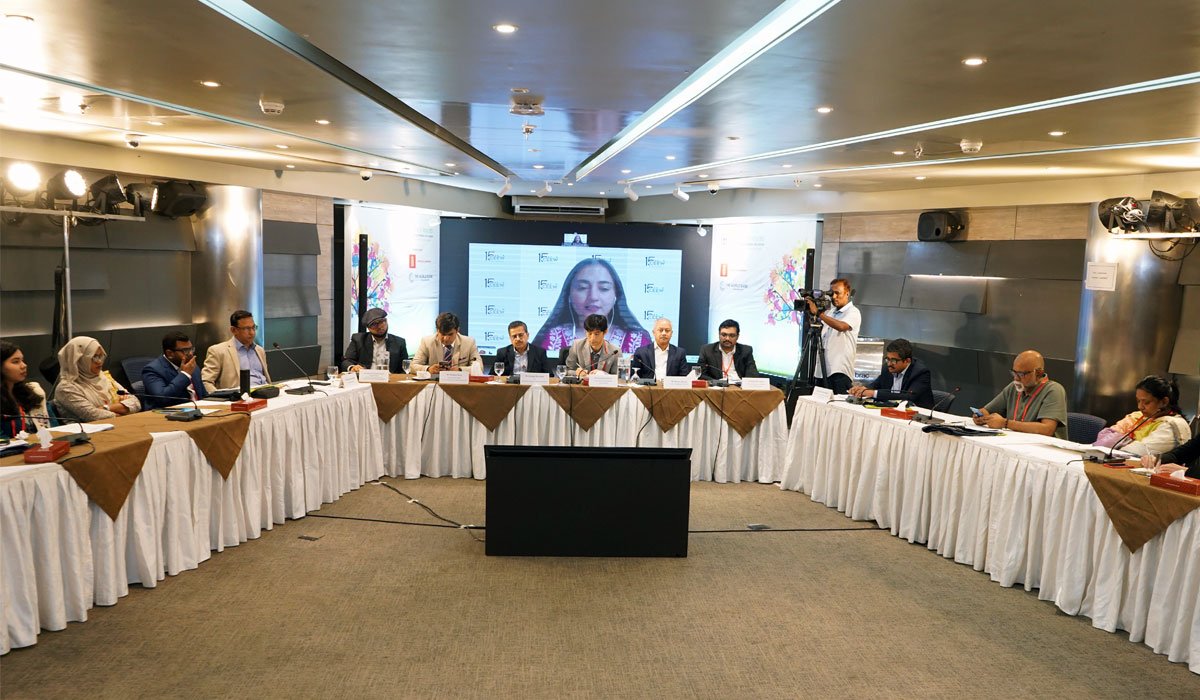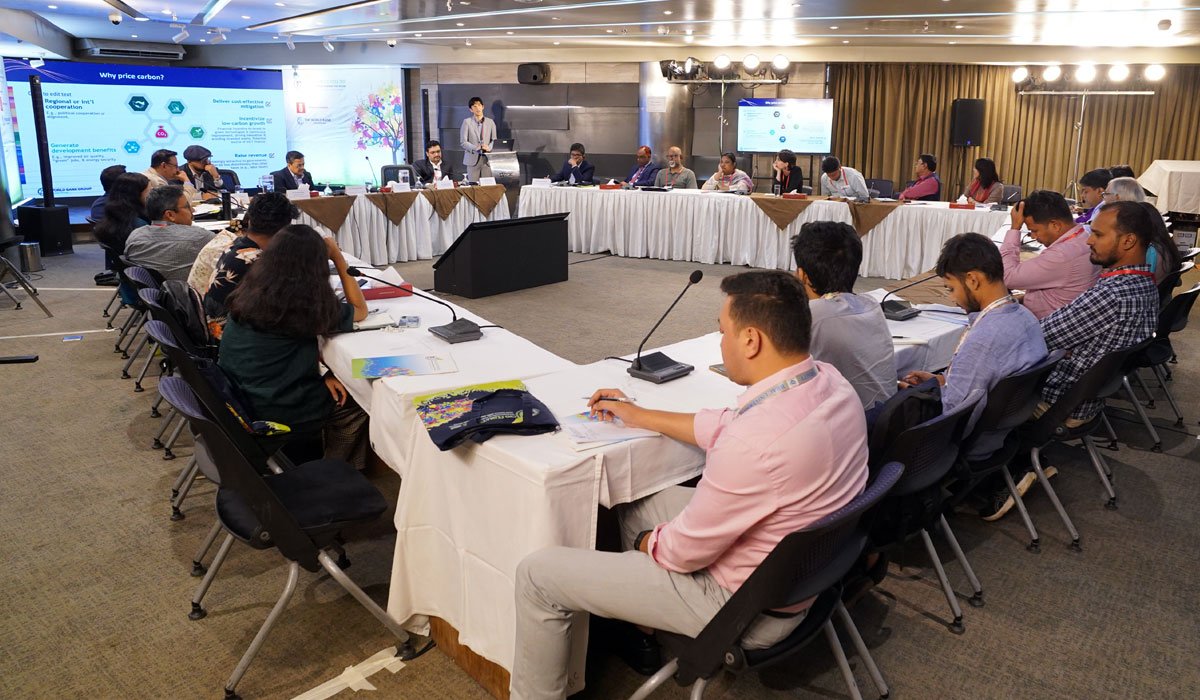
Market-based mechanisms are emerging as powerful tools to curb emissions and mobilise climate finance, especially for developing economies seeking sustainable growth. These opportunities and challenges took centre stage at the Parallel Session 3, “Carbon Pricing and Carbon Markets in Bangladesh”, held on Saturday, 18 October 2025, as part of CPD Climate Week 2025. Experts from government, academia, and industry discussed how effective governance, transparent pricing, and institutional readiness are key to unlocking Bangladesh’s carbon market potential.
Mr Keisuke Iyadomi, Senior Climate Change Specialist at The World Bank, said that carbon pricing is “a critical tool for low-carbon development,” highlighting its dual role in reducing emissions and generating revenue. He noted that over 80 jurisdictions have adopted such mechanisms, urging Bangladesh to prepare its systems to align with international carbon market frameworks under the Paris Agreement.

“Without strong institutions, governance, and public awareness, a carbon market cannot function efficiently,” cautioned Dr Sakib Bin Amin, Professor of Economics at North South University. He stressed that policy design must address existing market distortions and suggested starting with the fossil fuel sector and renewable energy investment to build early momentum.
From the private sector, Mr Tanul Chakraborty of Ha-Meem Group shared practical challenges faced by industries. Despite major investments in rooftop solar and energy-efficient systems, total emissions have risen with production growth. He argued that “a clear and consistent carbon credit policy” and robust monitoring systems are needed to make corporate emission trading viable.
Mr Shafiqul Alam of IEEFA said a carbon tax may suit Bangladesh better than an emissions trading scheme, given its industrial structure. He recommended pilot projects in high-emission sectors such as brick kilns and stressed the importance of transparent carbon revenue management.

Mr Shashish Shami Kamal of BUP discussed Bangladesh’s potential for “blue carbon credits” through mangrove restoration in the Sundarbans, along with feed-in tariffs and technology transfer partnerships to encourage green industry growth.
Mr Shams Zaman of PwC emphasised that carbon pricing must start with “industry-specific benchmarking and gradual subsidy reforms.” He called for strong leadership, pilot initiatives, and incentives to drive voluntary decarbonisation before scaling up nationally.
Joining online, Ms Aparna Sharma of CEEW, India, shared lessons from India’s new Carbon Credit Trading Scheme, noting that flexibility, transparency, and robust MRV systems are key. She said Bangladesh could follow a similar path by linking its carbon pricing strategy with national development goals.

Mr Shaymal Barman, Carbon Market Expert, said Bangladesh is “positioning itself as a seller of carbon credits” and aims to establish a national carbon registry soon. He cautioned that carbon pricing must not burden consumers and urged stronger domestic efforts to attract international support.
Concluding the discussion, Mr Alomgir Morshed, CEO of IDCOL, called for a comprehensive national carbon market strategy backed by government coordination. “Without a unified framework, we risk missing major global opportunities,” he said, stressing the need for dialogue, branding, and stakeholder alignment to make Bangladesh a credible climate leader.
🌎 Check out all session web posts and videos of the international conference “A World Beyond Crisis: Climate Solutions That Work.”
- Inaugural Session | A World Beyond Crisis: Climate Solutions That Work
Web post | Video - Opening Plenary | Road to COP30: How Can National Interests Be Aligned with Global Climate Goals?
Web post | Video - Parallel Session 1 | Operationalising NDCs in Climate Vulnerable Countries
Web post | Video - Parallel Session 2 | Climate and Gender: Integrating Equity in Policies
Web post | Video - Parallel Session 3 | Carbon Pricing and Carbon Markets in Bangladesh
Web post | Video - Parallel Session 4 | Climate-smart Agriculture and Food Security
Web post | Video - Parallel Session 5 | Climate Finance, Landscape, Policy and Governance
Web post | Video - Parallel Session 6 | High Level Dialogue on Achieving Debt Sustainability in the Face of Climate Change
Web post | Video



